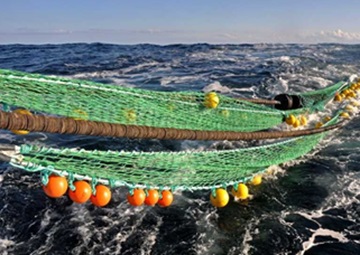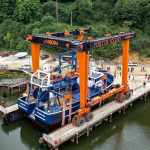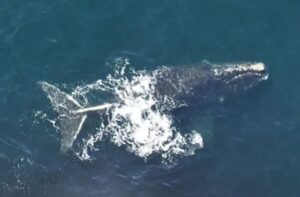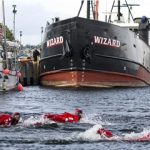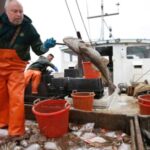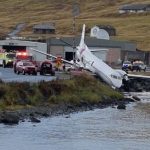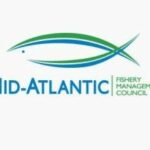Tag Archives: Scottish government
Fishing industry challenges from windfarms
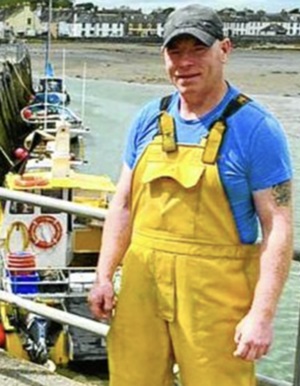 Fishing in Dumfries and Galloway faces challenges because offshore windfarms are risking “squeezing out” the sector, according to the region’s MP. Dumfries and Galloway MP John Cooper raised the issue in Westminster last week, highlighting how floating offshore wind is just one of the sectors affecting the fishing industry. This is because you cannot fish between offshore turbines, and their seabed infrastructure is another impediment. During a Westminster Hall debate on fishing, he praised the vital contribution of fishing – mainly centred largely on scallops, lobster and crab worth millions – to coastal communities across Dumfries and Galloway. He said: “Fisherman are criticised as voracious plunderers – when really they are cautious custodians of the sea. “It took sterling work from my colleague Finlay Carson MSP to stave off the threat of the loss of livelihood for static gear fishermen along the Solway Coast. more, >>CLICK TO READ<< 09:45
Fishing in Dumfries and Galloway faces challenges because offshore windfarms are risking “squeezing out” the sector, according to the region’s MP. Dumfries and Galloway MP John Cooper raised the issue in Westminster last week, highlighting how floating offshore wind is just one of the sectors affecting the fishing industry. This is because you cannot fish between offshore turbines, and their seabed infrastructure is another impediment. During a Westminster Hall debate on fishing, he praised the vital contribution of fishing – mainly centred largely on scallops, lobster and crab worth millions – to coastal communities across Dumfries and Galloway. He said: “Fisherman are criticised as voracious plunderers – when really they are cautious custodians of the sea. “It took sterling work from my colleague Finlay Carson MSP to stave off the threat of the loss of livelihood for static gear fishermen along the Solway Coast. more, >>CLICK TO READ<< 09:45
Floating wind farms threaten to destroy Scotland’s fishing sector
 The Scottish Fishermen’s Federation (SFF) said despite efforts to find a solution to the problem, mobile fishing, and floating offshore wind farms “are simply not able to co-exist”. Speaking at the SFF’s annual dinner in Edinburgh – which was attended by First Minister John Swinney – Elspeth Macdonald said the renewable projects are an existential threat to jobs in the sector. She warned the Scottish Government about “sleep-walking” into supporting an industry that she claimed could “destroy our world-class food production”. She told the audience at the Scotsman Hotel: “Our businesses will be completely excluded from areas that have been fished for generations, and the consequences of that – on businesses, on people, on the environment – are simply not known. more, >>CLICK TO READ<< 09:01
The Scottish Fishermen’s Federation (SFF) said despite efforts to find a solution to the problem, mobile fishing, and floating offshore wind farms “are simply not able to co-exist”. Speaking at the SFF’s annual dinner in Edinburgh – which was attended by First Minister John Swinney – Elspeth Macdonald said the renewable projects are an existential threat to jobs in the sector. She warned the Scottish Government about “sleep-walking” into supporting an industry that she claimed could “destroy our world-class food production”. She told the audience at the Scotsman Hotel: “Our businesses will be completely excluded from areas that have been fished for generations, and the consequences of that – on businesses, on people, on the environment – are simply not known. more, >>CLICK TO READ<< 09:01
Threat of mobile gear ban in 30% of Scottish waters
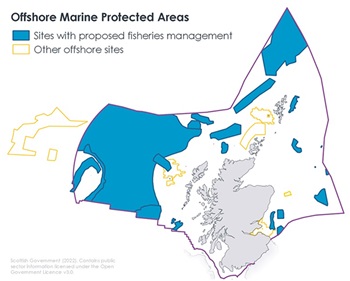 The Scottish government has launched a far-reaching consultation – set to run for just eight weeks – that could see fishing banned from 20 MPAs that cover a third of Scottish waters. As a minimum, it seems set to see five MPAs closed entirely to fishing, with 15 others seeing no-fish zones designated within them. The consultation gives only the option of partial or total fishing bans within the MPAs – it does not allow for a ‘neither option’ response. The government says that a second consultation relating to management and restriction of fishing inside 12nm will follow shortly. For each of the 20 MPAs, a review of fisheries management options, many drafted over a decade ago during the original designation process, is available. These range from the relatively uncontroversial closure of areas such as some deepwater sea mounts that have rarely, if ever, been fished, to much more controversial areas, such as the Central Fladen MPA. more, >>CLICK TO READ<< 16:11
The Scottish government has launched a far-reaching consultation – set to run for just eight weeks – that could see fishing banned from 20 MPAs that cover a third of Scottish waters. As a minimum, it seems set to see five MPAs closed entirely to fishing, with 15 others seeing no-fish zones designated within them. The consultation gives only the option of partial or total fishing bans within the MPAs – it does not allow for a ‘neither option’ response. The government says that a second consultation relating to management and restriction of fishing inside 12nm will follow shortly. For each of the 20 MPAs, a review of fisheries management options, many drafted over a decade ago during the original designation process, is available. These range from the relatively uncontroversial closure of areas such as some deepwater sea mounts that have rarely, if ever, been fished, to much more controversial areas, such as the Central Fladen MPA. more, >>CLICK TO READ<< 16:11
Scottish Government Discusses Cetacean Deaths from Fishing Line Entanglements
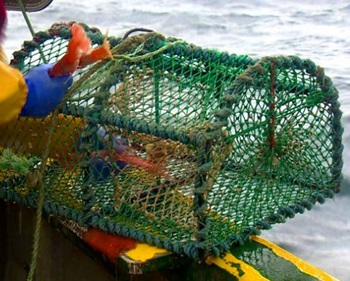 The Scottish Government has engaged in discussions with the Scottish Association for Marine Science (SAMS) regarding their research into reducing cetacean deaths caused by fishing line entanglements. This issue was highlighted during a parliamentary session, where Kenneth Gibson (SNP) inquired about the government’s actions on the matter. Cabinet Secretary for Rural Affairs, Land Reform, and Islands, Mairi Gougeon, acknowledged the importance of the research and the government’s commitment to addressing the issue. She emphasized the government’s intention to work with stakeholders to minimize bycatch and entanglement of sensitive marine species through the future catching policy. This effort aligns with Scotland’s broader goal of ensuring sustainable fisheries. more, >>CLICK TO READ<< 08:56
The Scottish Government has engaged in discussions with the Scottish Association for Marine Science (SAMS) regarding their research into reducing cetacean deaths caused by fishing line entanglements. This issue was highlighted during a parliamentary session, where Kenneth Gibson (SNP) inquired about the government’s actions on the matter. Cabinet Secretary for Rural Affairs, Land Reform, and Islands, Mairi Gougeon, acknowledged the importance of the research and the government’s commitment to addressing the issue. She emphasized the government’s intention to work with stakeholders to minimize bycatch and entanglement of sensitive marine species through the future catching policy. This effort aligns with Scotland’s broader goal of ensuring sustainable fisheries. more, >>CLICK TO READ<< 08:56
Scots overwhelmingly supportive of fishing sector – Polling shows UK-produced food as important as UK-produced energy
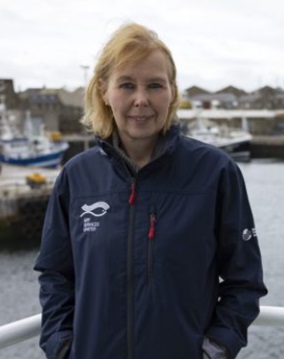 A large majority of Scots are backing the fishing industry amid growing pressure on fishing grounds, in a reminder to politicians not to neglect an important sector ahead of the general election. A new poll commissioned by the Scottish Fishermen’s Federation (SFF) reveals that 19 in 20 (95.7%) of Scots believe it is important for the UK to retain control over its fisheries. The poll also highlights that 91% agree fishing is a vital part of the UK economy. Additionally, 89.7% of people agree that UK-produced food is just as important as UK-produced energy. These issues will be debated by an election hustings panel including Kate Forbes, Rhoda Grant, Rachael Hamilton and Alastair Carmichael in Edinburgh tomorrow (12 June) at an event hosted by SFF. Please find attached the release and images for use. Please let me know if you have any further questions. Thanks.
A large majority of Scots are backing the fishing industry amid growing pressure on fishing grounds, in a reminder to politicians not to neglect an important sector ahead of the general election. A new poll commissioned by the Scottish Fishermen’s Federation (SFF) reveals that 19 in 20 (95.7%) of Scots believe it is important for the UK to retain control over its fisheries. The poll also highlights that 91% agree fishing is a vital part of the UK economy. Additionally, 89.7% of people agree that UK-produced food is just as important as UK-produced energy. These issues will be debated by an election hustings panel including Kate Forbes, Rhoda Grant, Rachael Hamilton and Alastair Carmichael in Edinburgh tomorrow (12 June) at an event hosted by SFF. Please find attached the release and images for use. Please let me know if you have any further questions. Thanks.Tories claim bigger earnings add up to Brexit boost for Scottish fishing
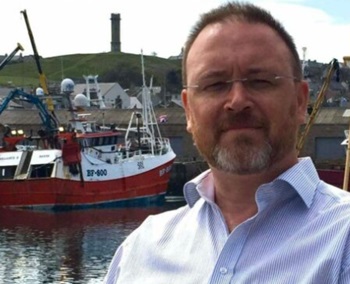 Scottish fishers are reaping the rewards of a Brexit boost to the value of their catches, the Tories have claimed. However, the Scottish Government insists the industry is worse off overall. Figures obtained from the government show a 27.4% boost to sales income for larger vessels – those 79ft and up – in the three years to 2022. These boats netted fish and other seafood worth a total of £3.5 million in 2022. This is compared with landings valued at £3m in 2021 and £2.8m in 2019. Crews on these vessels saw their average monthly sales incomes increase from £22,000 to £31,000. more, >>click to read<< 06:39
Scottish fishers are reaping the rewards of a Brexit boost to the value of their catches, the Tories have claimed. However, the Scottish Government insists the industry is worse off overall. Figures obtained from the government show a 27.4% boost to sales income for larger vessels – those 79ft and up – in the three years to 2022. These boats netted fish and other seafood worth a total of £3.5 million in 2022. This is compared with landings valued at £3m in 2021 and £2.8m in 2019. Crews on these vessels saw their average monthly sales incomes increase from £22,000 to £31,000. more, >>click to read<< 06:39
Fishing chiefs urge ministers to work with industry, not against it
 Fishing chiefs have urged the Scottish Government to work in tandem with the industry and help avoid a repeat of the Highly Protected Marine Areas (HPMAs) “fiasco” of 2023. Their plea comes at the end of a year in which, with the support of coastal and island communities, they fought off plans to limit fishing in at least 10% of Scotland’s seas. The Scottish Fishermen’s Federation (SFF) said it wanted “collaboration rather than conflict. “As we look ahead into next year, we urge ministers to resist the doom-laden and over-simplified platitudes of the corporately-funded environmental NGOs non-governmental organisations) who have their own agenda – banning fishing, regardless of the consequences. photos, more, >>click to read<< 12:51
Fishing chiefs have urged the Scottish Government to work in tandem with the industry and help avoid a repeat of the Highly Protected Marine Areas (HPMAs) “fiasco” of 2023. Their plea comes at the end of a year in which, with the support of coastal and island communities, they fought off plans to limit fishing in at least 10% of Scotland’s seas. The Scottish Fishermen’s Federation (SFF) said it wanted “collaboration rather than conflict. “As we look ahead into next year, we urge ministers to resist the doom-laden and over-simplified platitudes of the corporately-funded environmental NGOs non-governmental organisations) who have their own agenda – banning fishing, regardless of the consequences. photos, more, >>click to read<< 12:51
Protest song wins traditional music award
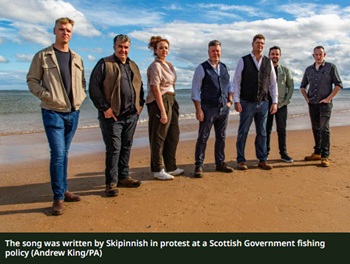 A song written in protest at a Scottish Government fishing policy has won original work of the year at the Scots Trad Music Awards. Skipinnish wrote The Clearances Again following the launch of plans by the Scottish Government to limit human activity in at least 10% of Scottish waters with the creation of highly protected marine areas (HPMAs). Following a consultation on the issue, which garnered widespread opposition, including among SNP MSPs, the plan was eventually dropped. Written from the perspective of Outer Hebrides-based fisherman Donald Francis MacNeil – a friend of Skipinnish co-founder Angus MacPhail, the song compared the proposed policy to the Highland clearances, which saw the forced eviction of Scots across the Highlands and Islands. more, >>click to read<< 15:21
A song written in protest at a Scottish Government fishing policy has won original work of the year at the Scots Trad Music Awards. Skipinnish wrote The Clearances Again following the launch of plans by the Scottish Government to limit human activity in at least 10% of Scottish waters with the creation of highly protected marine areas (HPMAs). Following a consultation on the issue, which garnered widespread opposition, including among SNP MSPs, the plan was eventually dropped. Written from the perspective of Outer Hebrides-based fisherman Donald Francis MacNeil – a friend of Skipinnish co-founder Angus MacPhail, the song compared the proposed policy to the Highland clearances, which saw the forced eviction of Scots across the Highlands and Islands. more, >>click to read<< 15:21
Industry welcomes confirmation that HPMA proposals have been scrapped
 The move was welcomed by the fishing industry which had campaigned against the proposal. Shetland Fishermen’s Association (SFA) executive officer Sheila Keith said members were pleased that common sense had prevailed. “The angst caused by the ill-conceived proposals was clear by the responses to the consultation which showed, when you removed campaign responses, 76 per cent of respondents opposed, and only 20 per cent supported the plans. “However, our concerns are not wholly alleviated as the government still discuss the implementation of “enhanced marine protection” over 10 per cent of Scottish waters. >>click to read<< 10:19
The move was welcomed by the fishing industry which had campaigned against the proposal. Shetland Fishermen’s Association (SFA) executive officer Sheila Keith said members were pleased that common sense had prevailed. “The angst caused by the ill-conceived proposals was clear by the responses to the consultation which showed, when you removed campaign responses, 76 per cent of respondents opposed, and only 20 per cent supported the plans. “However, our concerns are not wholly alleviated as the government still discuss the implementation of “enhanced marine protection” over 10 per cent of Scottish waters. >>click to read<< 10:19
SNP fully scraps controversial fishing restrictions in final climbdown
 Scottish Government minister Màiri McAllan announced her party will no longer pursue divisive plans to restrict fishing in 10% of Scotland’s seas. The environmental policy aimed to protect sea life under threat but was met with a huge backlash from concerned rural and coastal communities. In June, Ms Allan said HPMAs would no longer be implemented on schedule by 2026 as government ministers went back to the drawing board. It came weeks after leading figures from the country’s seafood sector held a major protest outside Holyrood. Now Ms McAllan has revealed the proposals will be ditched entirely following the angry responses from fishing industry leaders opposed to the scheme. >>click to read<< 08:29
Scottish Government minister Màiri McAllan announced her party will no longer pursue divisive plans to restrict fishing in 10% of Scotland’s seas. The environmental policy aimed to protect sea life under threat but was met with a huge backlash from concerned rural and coastal communities. In June, Ms Allan said HPMAs would no longer be implemented on schedule by 2026 as government ministers went back to the drawing board. It came weeks after leading figures from the country’s seafood sector held a major protest outside Holyrood. Now Ms McAllan has revealed the proposals will be ditched entirely following the angry responses from fishing industry leaders opposed to the scheme. >>click to read<< 08:29
New Gov’t plan to track small fishing boats
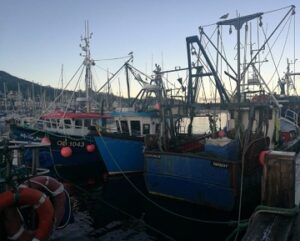 Proposals to introduce electronic tracking and monitoring technology for small fishing vessels will be consulted on as part of package of new fisheries measures. The consultation proposes that vessel tracking devices will be required by Scottish commercial fishing vessels under 12 metres in length wherever they operate, and by all vessels of the that size when they operate in Scottish waters. It also asks whether Remote Electric Monitoring systems (REM) – which are more sophisticated than vessel tracking – should be required on some inshore vessels. A Scottish Government spokesperson explained: “Rolling out such technology across Scotland’s fishing fleet would show that vessels are operating sustainably and within the law, increasing consumer confidence in Scottish seafood. >click to read< 10:58
Proposals to introduce electronic tracking and monitoring technology for small fishing vessels will be consulted on as part of package of new fisheries measures. The consultation proposes that vessel tracking devices will be required by Scottish commercial fishing vessels under 12 metres in length wherever they operate, and by all vessels of the that size when they operate in Scottish waters. It also asks whether Remote Electric Monitoring systems (REM) – which are more sophisticated than vessel tracking – should be required on some inshore vessels. A Scottish Government spokesperson explained: “Rolling out such technology across Scotland’s fishing fleet would show that vessels are operating sustainably and within the law, increasing consumer confidence in Scottish seafood. >click to read< 10:58
Ayrshire fishing industry: Consultation is launched
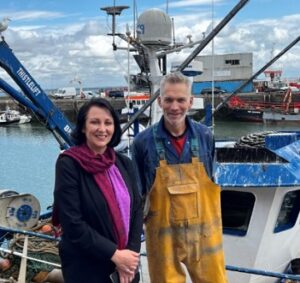 SNP MSP Siobhian Brown has welcomed plans from the Scottish Government that will attempt to boost the fishing industry in Ayr and Troon and has encouraged local stakeholders to engage with the consultation. The consultation on how to collaboratively improve inshore fisheries data, which was launched on August 14, includes proposals to introduce electronic tracking and monitoring technology for small fishing vessels, which will help to increase consumer confidence in Scottish seafood. It follows two recent consultations: one on Remote Electric Monitoring (REM) on board pelagic and scallop vessels, and the other on Scotland’s Future Catching Policy. These collaborative consultations, and the package of measures they will introduce, represent Scotland’s future as a world-class sustainable fishing nation. >click to read< 09:46
SNP MSP Siobhian Brown has welcomed plans from the Scottish Government that will attempt to boost the fishing industry in Ayr and Troon and has encouraged local stakeholders to engage with the consultation. The consultation on how to collaboratively improve inshore fisheries data, which was launched on August 14, includes proposals to introduce electronic tracking and monitoring technology for small fishing vessels, which will help to increase consumer confidence in Scottish seafood. It follows two recent consultations: one on Remote Electric Monitoring (REM) on board pelagic and scallop vessels, and the other on Scotland’s Future Catching Policy. These collaborative consultations, and the package of measures they will introduce, represent Scotland’s future as a world-class sustainable fishing nation. >click to read< 09:46
Small fishing boats in Scotland could be tracked under new plans
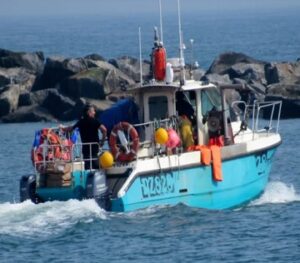 Small fishing vessels could be required to use tracking and monitoring systems under new proposals from the Scottish Government. A new consultation proposes that the devices be fitted to all commercial fishing vessels under 12 metres long. They are already required for vessels longer than this while fishing in waters around Europe. The Government also published the outcome of other fishing consultations, saying remote electronic monitoring – which is more sophisticated than vessel tracking – will become mandatory on large pelagic vessels and scallop dredgers. >click to read< 09:41
Small fishing vessels could be required to use tracking and monitoring systems under new proposals from the Scottish Government. A new consultation proposes that the devices be fitted to all commercial fishing vessels under 12 metres long. They are already required for vessels longer than this while fishing in waters around Europe. The Government also published the outcome of other fishing consultations, saying remote electronic monitoring – which is more sophisticated than vessel tracking – will become mandatory on large pelagic vessels and scallop dredgers. >click to read< 09:41

Government shelving HPMAs a ‘cautious win’ for industry
There remains concern from Shetland Fishermen’s Association, however, that an alternative could be worked up by government which may end up being similar to HPMAs. SFA officer Sheila Keith said one fisherman told her after news of the U-turn that the government had only kicked HPMAs into the “long grass” for a while. On Thursday the Scottish Government announced that after consulting communities it would be dropping its proposal for HPMAs. Keith commented that the SFA welcomed the news, but said it was a case of wait and see regarding what the government’s alternative “pathway” will be. She said the government has “basically just bought themselves time”. >click to read< 08:59

Breaking news: Scottish Government backs down over HPMAs
Mairi McAllan, Scotland’s Net Zero Secretary, announced today that both the timetable – with implementation due to take place by 2026 – and scope, covering 10% of Scotland’s coastal waters, were no longer government policy. The Scottish Government had published a consultation document last December, setting out plans for Highly Protected Marine Areas (HPMAs) in which virtually no form of commercial activity – including all forms of fishing, aquaculture or offshore renewable energy installations – would be permitted. The proposals drew strong criticism from coastal communities, the fishing industry and the fish farming sector, and even from some Scottish National Party (SNP) members of the Scottish Parliament, including former Fisheries Minister Fergus Ewing. >click to read< 09:55

SNP minister says fishing ban ‘will not be imposed’ on communities
Scotland’s Net Zero Secretary has defended her government’s controversial plans to expand protected marine areas – insisting that no sites have been identified and proposals will not be “imposed” on coastal communities. Fishing bosses have reacted angrily to plans by the Scottish Government to consider introducing highly protected marine areas (HMPAs). Under the plans, designated areas would be under rules to “strictly protect and leave undisturbed, all natural processes of the marine ecosystem”, including “the seabed, water column habitats and everything that lives in the protected area”. >click to read< 09:12
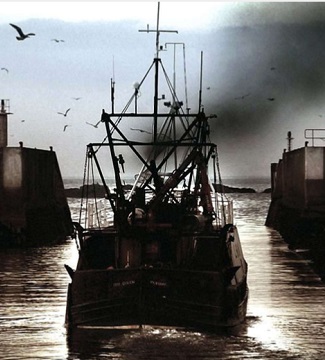
Former SNP MSP quits party over plan to ban fishing that could ‘devastate’ coastal communities
Angus MacDonald, who served at Holyrood for a decade before stepping down in 2021, is the latest figure to criticise the introduction of highly protected marine areas (HPMAs). The Scottish Government has committed to designating at least 10 per cent of the country’s coastline as highly protected in an effort to boost ecosystems. Commercial and recreational fishing would be banned in the zones as well as the harvesting of seaweed. MacDonald, who lives on the isle of Lewis in the Outer Hebrides, believes the law would be devastating to the economy of coastal communities. >click to read< 10:16
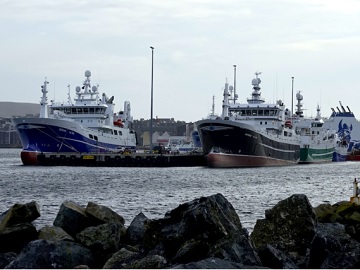
Pelagic industry at loggerheads with government over new landing rules
The industry, consisting of 20 large pelagic trawlers including eight based in Shetland, said it stands to lose millions of pounds in revenue should it be legally required to land 55 per cent of mackerel and herring at Scottish ports. The requirement to demonstrate what is known as “a real economic link” of vessels to the country they are registered and licensed in is nothing new. In the past, fishing companies could comply with the rules by either landing 50 per cent of its quota into UK ports or employing crew of which 50 per cent lived in the UK, or by spending half of its operating cost in the UK. >click to read< 09:44
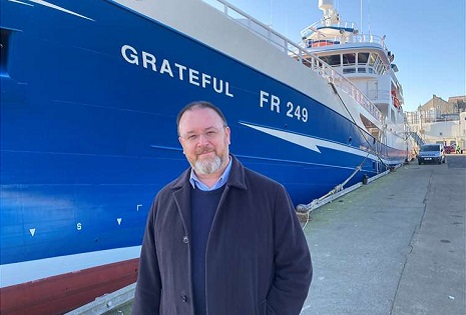
Banff and Buchan MP urges rethink of Highly Protected Marine Area plans
David Duguid MP has written to Scottish Government minister Mairi Gougeon MSP urging her to rethink proposals for Highly Protected Marine Areas following concerns that they restrict twenty times as much as the UK Government’s plans for English waters. In his letter to the rural affairs secretary, Mr Duguid has hit out at the impact the proposals will have on Scotland’s fishing fleet and has asked why HPMAs in Scottish waters are being implemented on an immediately permanent basis and not on a trial/pilot period like the rest of the United Kingdom. >click to continue< 14:58

MPA’s: Scottish island faces being ‘wiped out’ by SNP’s green crackdown on fishing in its rich waters
Tiree, population 653, is known as the Hawaii of the North but islanders say it will become ‘non-viable’ if a Highly Protected Marine Area is imposed by Holyrood ministers. Now the risk is that a new environmental protection area would kill the island’s fishing boat trade, which is one of the few economic growth sectors. Having gone from two boats in 1995 to nine boats today, which provide 20 full time jobs, the annual catch of crab and lobster has a value of £1million. Tiree fisherman Neil MacPhail said: “If this (HPMA) landed on top of us we would be wiped out overnight, with one stroke of the pen on a chart.”He added: “My boat alone puts food on the table for eleven people. One boat’s worth of economic impact is huge in a community such as Tiree. It’s the only industry in the island which has genuinely bucked the depopulation trend.” >click to read< 18:07
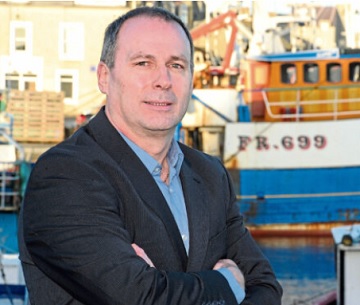
Scottish fishers blast Holyrood for ‘scandalous’ marine policy tantamount to ‘greenwashing’
Mike Park was speaking as the clock ticks down on a Scottish Government consultation on its controversial proposals for Highly Protected Marine Areas (HPMAs). Another industry leader, Elspeth Macdonald, branded the plans as “greenwashing”. And Banff and Buchan Tory MP David Duguid claimed they were “the biggest threat to the north-east fishing industry for decades”. But the government hailed its proposals as “a step change in the protection of our marine environment”. It aims to have at least 10% of Scottish waters designated as HPMAs by 2026. >click to read< 07:45
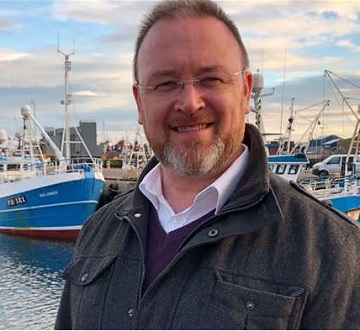
Issues raised over Highly Protected Marine Areas
Scottish Government plans to designate at least 10 per cent of Scotland’s seas as Highly Protected Marine Areas (HPMAs) are the “biggest threat to the north-east fishing industry for decades”, a MP has warned. Mr Duguid said the Scottish Government’s plans to install HPMAs and offshore wind, to a larger extent than elsewhere in the UK, is causing concerns of “spatial squeeze” and will be detrimental to the Scottish fleet. It follows concerns from organizations including the Scottish Fisherman’s Federation (SFF) which described the plans as “government greenwashing” while “prioritizing political objectives over good policymaking and decision-taking”. >click to read< 15:45
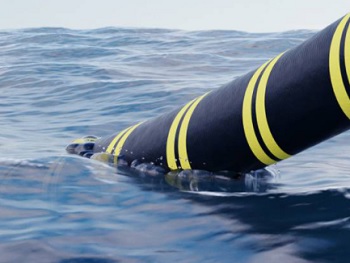
‘Cable corridors’ to stop boats cutting off island’s phone and internet
The archipelago in the North Sea lost phone, broadband and mobile services last month after a subsea cable was damaged. Faroese Telecom, the cable operator, said they believed it had been cut by fishing vessels. It was later confirmed by the Scottish Government that a fishing trawler hit the primary cable. There are now proposals for a designated corridor for undersea infrastructure cables to run along. It is hoped that these would give greater certainty to fishermen, as well as reducing the risk of telecommunications outages in future. >click to read< 10:45
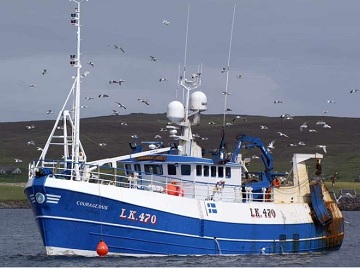
New measures announced to boost Scots seafood industry
The Scottish Government has published its first strategy for the seafood sector, detailing how the fishing and aquaculture sectors are being supported to remain internationally competitive and attract skills and talent to some of Scotland’s most rural and coastal areas – despite the challenges of the post-Brexit trading environment. The strategy also highlights ongoing work to monitor and manage the marine space, so that consumers can have confidence in the sustainability of Scottish seafood. >click to read< 07:49
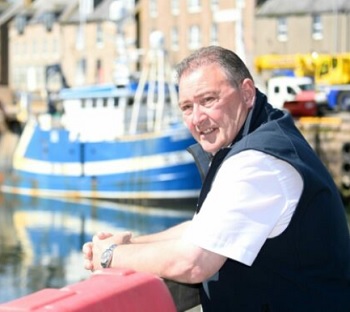
Jimmy Buchan: energy costs will drive fish processors out of business
Mr Buchan has sent a letter to the two candidates vying to become Prime Minister, Liz Truss and Rishi Sunak, ahead of their campaigning visits to Scotland tomorrow. In the letter Mr Buchan, the chief executive of the Scottish Seafood Association, warned that on top of Brexit and Covid, escalating fuel costs were having a “devastating impact on our ability to remain viable”. Meanwhile, the body representing the fishing industry has also issued an open letter to the prospective PMs. Elspeth Macdonald, chief executive of the Scottish Fishermen’s Federation, highlighted the need for “fairer decision making” over use of the seas in order to prevent fishing becoming “collateral damage” ahead of the spansion of wind farms. >click to read< 15:21

Warning of ‘environmental devastation’ of offshore wind farms
A campaign group has accused the offshore wind industry of creating “environmental devastation”, and claimed that the impact will become greater as more projects are developed. Scotland Against Spin took issue with a Scottish Government survey which found that a majority of people approve of offshore wind farms. Those living in coastal areas cited the economic benefits of offshore, according to the study, while the effects on tourism “could be minimal”. Industry body Scottish Renewables said the findings indicated that most members of the public recognise the social and economic importance of the offshore wind sector. However, Scotland Against Spin chairman Graham Lang maintained that offshore developments are posing a threat to seabirds, including puffins and kittiwakes, and to fish species such as haddock, cod and mackerel. >click to read< 20:19
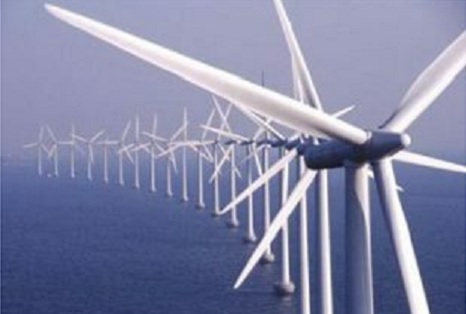
A very concerned fisherman writes, Questions remain unanswered
I recently sent a letter to our Scottish Government requesting answers to questions on the following issues. How much of our country’s fishing grounds are to be sold off and covered with anchors and chains to hold offshore wind farms in place, thus, excluding UK fishing communities’ access to valuable fishing grounds? How many thousands of miles of expensive (plastic covered) copper cables will be required to be laid on the seabed, to transfer the generated power to where it is required? Has the carbon cost of the production of the windmills, the copper cables and the steel for the anchors and chains that will be required, running in various directions from each windmill to hold them in place; been included in the environmental and financial calculations, plus the windmill’s replacement roughly every twenty years? >click to read the rest< by William Polson, 08:07
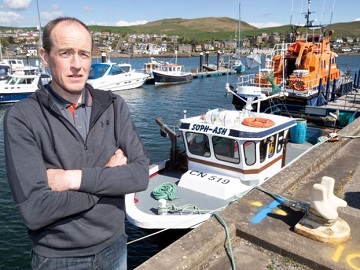
Scottish Governments “senseless” ban on Firth of Clyde ‘ruining generations of business’
Furious fishermen have accused the Scottish Government of devastating their historic Firth of Clyde industry with a “senseless” ban. Boats in the area support more than 600 jobs, many of which are in small family businesses keeping the way of life alive for remote communities. But fishermen were left shocked when ministers implemented an 11-week ban in February, leaving them unable to earn a living. The move is designed to encourage the resurgence of cod stocks, but previous restrictions allowed vessels which didn’t interfere with their habitat to continue working. >click to read< 08:10

Clyde fishing ban: Scottish Government refuses financial support for creel fishermen
The news comes after an 11-week targeted cod ban, prohibiting all fishing activity where cod can spawn in the Firth of Clyde, came into place on February 14. Rural affairs secretary Mairi Gougeon confirmed, in line with policy around similar management measures, including the National Cod Avoidance Plan and Marine Protected Areas,,, The minister said adapting the measures to exclude any exemptions such as creel fishing this year was the “right decision” to protect spawning cod based on “the best available scientific evidence”. However, scientists and academics have claimed there is “no evidence” creel fishing impacts cod spawning. >click to read< 08:36






